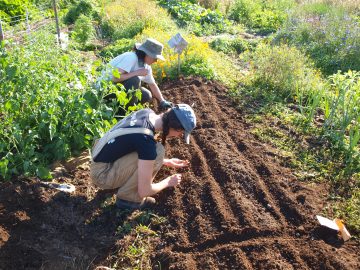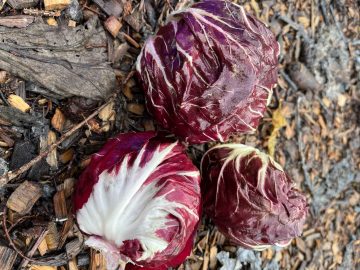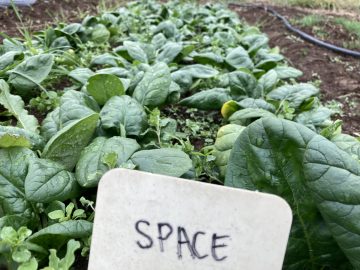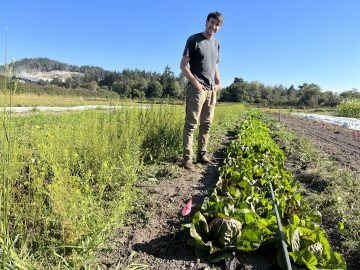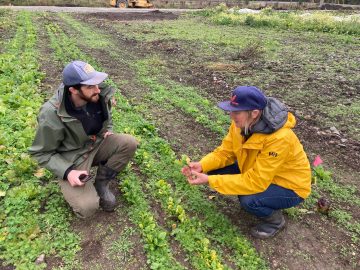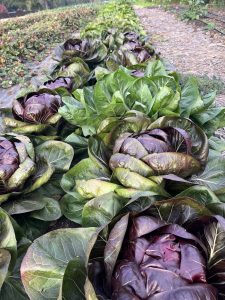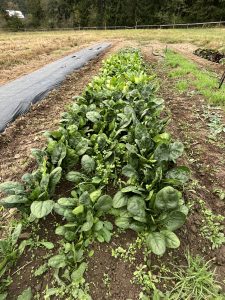Project leads: Raelani Kesler, Dr. DeLisa Lewis
Supervisor: Dr. Sean Smukler
Project funding: Climate Change Adaptation Program
Overview:
The Vancouver Island Winter Vegetable Trial (VIVT) developed out of the Vancouver Island Adaptation Strategies planning process (2019-2020). This process compiled input from agricultural producers and government partners to identify challenges to Vancouver Island’s agricultural production due to climate change. The VIVT project aims to help address one identified area of concern, shifting crop suitability.
Climate change is impacting growing conditions on Vancouver Island through shifting precipitation patterns and increasing temperatures. These changing conditions create variability in growing season length and may change fall and winter crop and variety suitability. These changes also bring potential opportunities for vegetable growers interested in season extension. The identification of crops and specific varieties for winter harvest helps growers investigate the possibility of fresh produce demand in the off season and provide them with profitable options for season extension.
Two crops, chicory and spinach, with seven varieties each were selected for evaluation. Farmer participation was of central importance and the trial was designed to facilitate their involvement and with their input. Eight vegetable farms participated in the two-year (2021-2022) trial.
Project objectives:
- Build capacity for on-farm and grower participatory variety trials on Vancouver Island
- Evaluate a selection of winter-harvest varieties for growing season extension
- Share findings of variety trials with industry organizations/partners and growers on Vancouver Island
Research sites and project design:
One mother site and seven daughter sites were selected for the VIVT project. A mother-daughter design consists of a mother site, an expansive trial with three replicates of each crop variety, and daughter sites, with one replicated of each variety planted at each site. The replicated trial (mother site) allows for robust data collection and statistical analysis while the daughter sites provide information about variety performance across different climatic, soil, and management conditions. The mother site is located in Nanaimo, the seven daughter sites range from Victoria to the south and Comox Valley to the north.
Spinach and chicory were selected as the crops for evaluation in this trial. Seven varieties of each crop type were planted in 8’ blocks on every farm. Varieties were selected for field production and winter harvest with consultation from organic seed producers.
The varieties being evaluated in this trial are as follows:
Measurements and data collection:
Spinach and chicory varieties were evaluated on the following characteristics by the farmer participants:
- Germination
- Crop vigor
- Cold hardiness
- Bolt resistance
- Disease resistance
- Yield
- Crop quality (appearance, flavor)
Results
- Final report and recommendations will be available March 2023.
- Spinach trial fact sheets
- Chicory trial fact sheets
- Overview of chicory results (video)
- Overview of spinach results (video)
